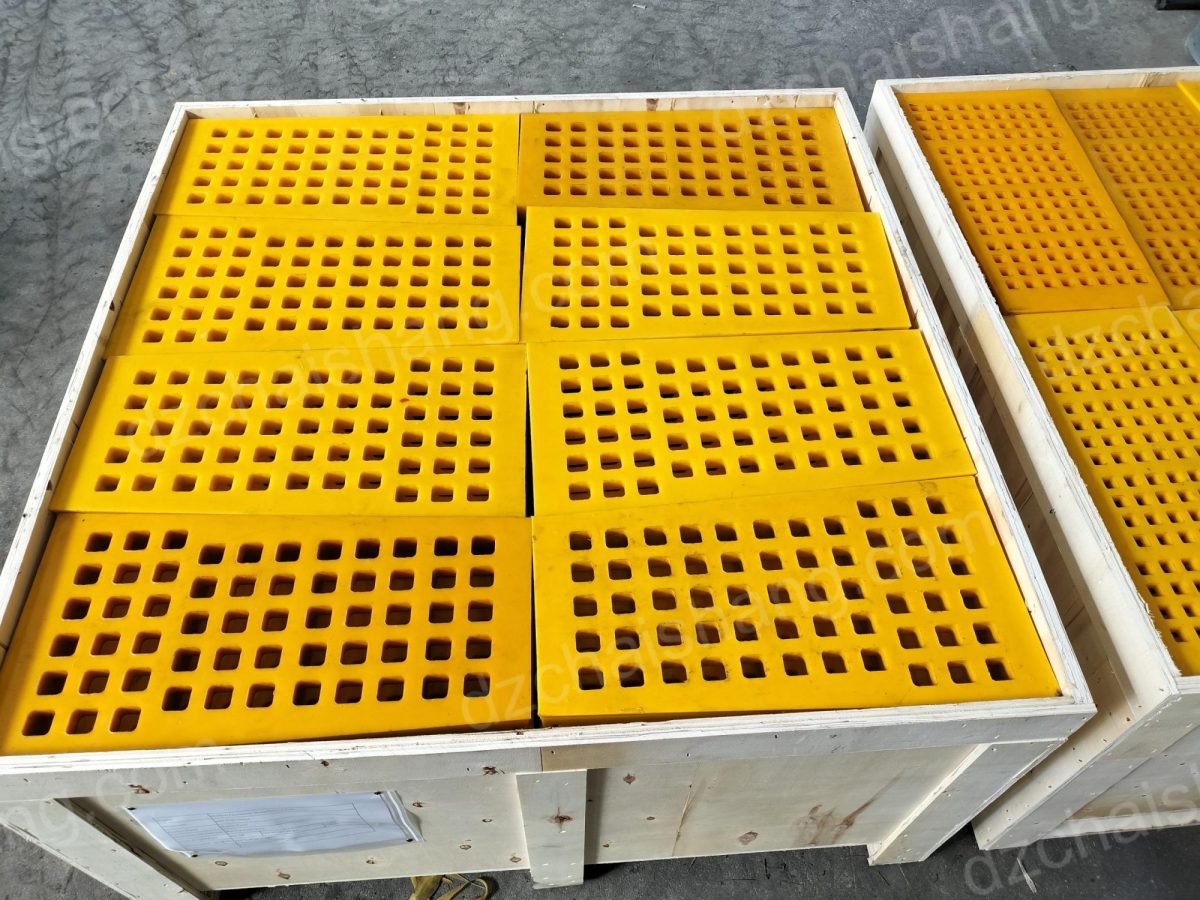- 30
- May
polyurethane dewatering panels,polyurethane dehydration screen
Understanding the Role of Polyurethane Dewatering Panels in Waste Management
Polyurethane dewatering panels, also known as polyurethane dehydration screens, play a pivotal role in waste management systems. These panels are designed to separate water from various types of waste materials, a process that is crucial in waste treatment and recycling. The use of polyurethane in these panels is not arbitrary; it is chosen for its unique properties that make it ideal for the task.
Polyurethane is a type of polymer that is both flexible and durable. It can withstand high levels of pressure and is resistant to abrasion and corrosion. These properties make it an excellent material for dewatering panels, as they are often exposed to harsh conditions and need to be robust enough to handle large volumes of waste and water.
The process of dewatering involves the removal of water from solid material or soil by wet classification, centrifugation, or filtration. In the context of waste management, dewatering is essential as it reduces the volume of waste, making it easier and more cost-effective to handle, transport, and dispose of. Moreover, by removing water, the weight of the waste is significantly reduced, which further cuts down on transportation costs.
Polyurethane dewatering panels are typically used in dewatering screens, which are machines designed to remove water from waste. These screens vibrate, causing the waste to move across the polyurethane panels. The water, being a liquid, is able to pass through the small holes in the panels, while the solid waste is retained.
One of the key advantages of using polyurethane dewatering panels is their efficiency. They are capable of removing a high percentage of water from waste, which not only reduces the volume and weight of the waste but also minimizes the amount of water that needs to be treated or disposed of. This is particularly important in industries that produce large amounts of liquid waste, such as the food and beverage industry, the mining industry, and the oil and gas industry.

Another advantage of polyurethane dewatering panels is their longevity. Thanks to the durability of polyurethane, these panels can last for a long time, even when used in harsh conditions. This makes them a cost-effective choice in the long run, as they do not need to be replaced frequently.
Furthermore, polyurethane dewatering panels are easy to install and maintain. They can be easily fitted onto dewatering screens and can be cleaned with minimal effort. This ease of use makes them a practical choice for many waste management operations.
In conclusion, polyurethane dewatering panels, or polyurethane dehydration screens, are an integral part of many waste management systems. Their role in separating water from waste is crucial in reducing the volume and weight of waste, making it easier and more cost-effective to handle. The unique properties of polyurethane, including its flexibility, durability, and resistance to abrasion and corrosion, make it an ideal material for these panels. With their efficiency, longevity, and ease of use, polyurethane dewatering panels are a valuable tool in the pursuit of effective waste management.
Innovations in Mining: The Impact of Polyurethane Dehydration Screens
Innovations in mining technology have significantly improved the efficiency and productivity of mining operations worldwide. One such innovation that has made a substantial impact is the use of polyurethane dewatering panels, also known as polyurethane dehydration screens. These screens have revolutionized the way mining companies handle and process materials, particularly in the crucial stage of dewatering.
Polyurethane dewatering panels are essentially screens designed to separate water from mined materials. They are made from polyurethane, a type of polymer that is known for its exceptional durability and resistance to wear and tear. This makes them ideal for the harsh conditions typically encountered in mining operations.
The primary function of these screens is to facilitate the dewatering process. After the extraction of minerals, the mined materials are often mixed with water, forming a slurry. This slurry needs to be dewatered, that is, the water needs to be separated from the solid materials. This is where polyurethane dewatering panels come into play. They effectively filter out the water, leaving behind the solid materials which can then be further processed or disposed of.
The use of polyurethane in these screens offers several advantages over traditional materials like metal or rubber. Firstly, polyurethane is highly resistant to abrasion, which is a common issue in mining operations. This means that the screens can withstand the constant wear and tear, resulting in a longer lifespan and reduced maintenance costs.
Secondly, polyurethane is also resistant to corrosion, another common problem in mining. Unlike metal screens, which can corrode and degrade over time, polyurethane screens remain unaffected by the corrosive elements present in the mined materials or the environment. This further enhances their durability and longevity.
Thirdly, polyurethane screens offer superior performance in terms of dewatering efficiency. They have a unique design that allows for maximum water flow, ensuring that the dewatering process is as efficient as possible. This not only speeds up the overall mining process but also reduces the amount of water wasted, contributing to more sustainable mining practices.
Moreover, polyurethane dehydration screens are also highly versatile. They can be customized to fit any size or shape, making them suitable for a wide range of mining applications. They can also be designed with different hole sizes to accommodate different types of materials, further enhancing their utility.
In conclusion, the introduction of polyurethane dewatering panels has significantly improved the efficiency and sustainability of mining operations. Their exceptional durability, resistance to wear and corrosion, and superior dewatering performance make them an invaluable tool in the mining industry. As mining companies continue to seek ways to improve their operations and reduce their environmental impact, it is likely that the use of polyurethane dehydration screens will become even more widespread. This is a testament to the transformative power of innovation in the mining industry.
